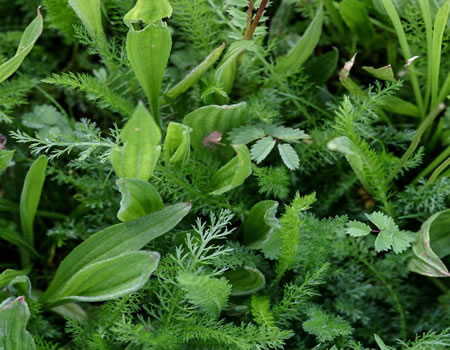
Herb-drug interaction is an important factor to be investigated because there is always a chance to get undesirable therapeutic effect of the prescribed allopathic medicine.
Ciprofloxacin is a widely used antibiotic of the class, fluoroquinolones that is active against numerous germs that cause a variety of illnesses such as respiratory and urinary tract infections.
It is rapidly and well absorbed from the walls of the intestine, widely distributed in the body with good tissue penetration. However; its absorption can be affected negatively, if taken alongside other things that contain metal ions or calcium-fortified orange juice.
This includes metal ions such as aluminum, calcium, copper, iron, magnesium, manganese and zinc found in dairy products (milk, cheese and yogurt), antacids and mineral supplement.
Now, Swedish bitters elixir, as the name indicates, is very bitter. The preparation made from a blend of various parts and fruits of plants such as Aloe Vera, Cinamum aromaticum, Citrus aurantifolia, Acinos arvensis and Chenopodium murale.
The Swedish bitters name, at first seems likely that the ingredients come from the country of Sweden (Swedish), but this is not the case. The name derives from the Swedish physicians Dr. Claus (Klaus) Samst. The elixir is said to be the creation of Swiss physician, Dr. Phillipus Paracelsus, who practised in the 1500s.
Different brands of Swedish bitters in Nigeria is indicated for the treatment of kidney and bladder infections, normalise intestinal movement, help regulate blood pressure, facilitate digestion and to control body weight.
Now, experts who investigate the possible drug-herb interaction of Yoyo bitters cautioned on ingesting different Swedish bitters elixir with Ciprofloxacin, a group of antibiotic to treat respiratory and urinary tract infections.
The researchers showed that co-administration of this brand of Swedish bitters alter the effectiveness of antibiotics like Ciprofloxacin and suggested staggering its time of administration as a better option.
The 2018 study in the Tropical Journal of Natural Product Research involved Olubukola C. Martins at the Faculty of Pharmacy, University of Lagos, in collaboration with Moshood O. Akinleye, Grace E. Ukpo, Aderonke A. Adepoju-Bello, Bukola B. Odediran, Esther O. Onun and Paul A. Makinde.
The researchers had studied the possible drug-herb interaction between Ciprofloxacin tablet and Yoyo bitters when co-administered in 30 healthy volunteers that were divided into two treatment groups.
All participants were non-smokers and not on any medications. They also abstained from coffee, grape fruits, antacids, multivitamins cimetidine, green tea, food supplements, beverages or drug that can affect ciprofloxacin four weeks before investigation.
In addition, they were in good health as indicated that medical history and routine physical examinations. The volunteers were regularly monitored during the experimental period for the development of any possible adverse effect.
Each group either took ciprofloxacin (500 mg) tablet with 200 mL of water or ciprofloxacin with 30 mL of yoyo bitters. A wash out period of two weeks was observed, and the treatment groups were interchanged. Blood samples were thereafter collected and analysed for the antibiotic.
The tested bitters contained a large amount of calcium, magnesium, lron, zinc, manganese and copper that are sufficient to lower Ciprofloxacin absorption
That means the bioavailability of ciprofloxacin will be reduced in the presence of yoyo bitters and consequently resulted in a reduction in therapeutic efficacy of ciprofloxacin, though the result is not significant.
Why zobo, ginger are good for weight control —Scientists
According to them, “For the desired therapeutic effect of ciprofloxacin to be optimally achieved, concomitant administration with Yoyo bitters or any herbal preparation should be staggered.”
In 2008, experts in the Journal of Applied Research had cautioned that orange juice should also be ingested at least two hours before or after ciprofloxacin administration. Available ofloxacin decreased significantly in the volunteers who had taken the drug with orange juice than those who had taken the drug with water.
The study was conducted with Bangladeshi people said ofloxacin should not be taken with orange juice under any circumstances as the potential suboptimal drug exposure will the patient at more risk of treatment.
Also, there is the chance of the infecting germ become resistant to the drug, thereby restricting treatment options for the patient in the future.
Meanwhile, the extent of a juice-drug interaction may be associated with factors such as volume of drinking juice, fruit varieties, type of fruit and time between juice drinking and drug intake.
